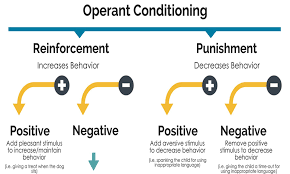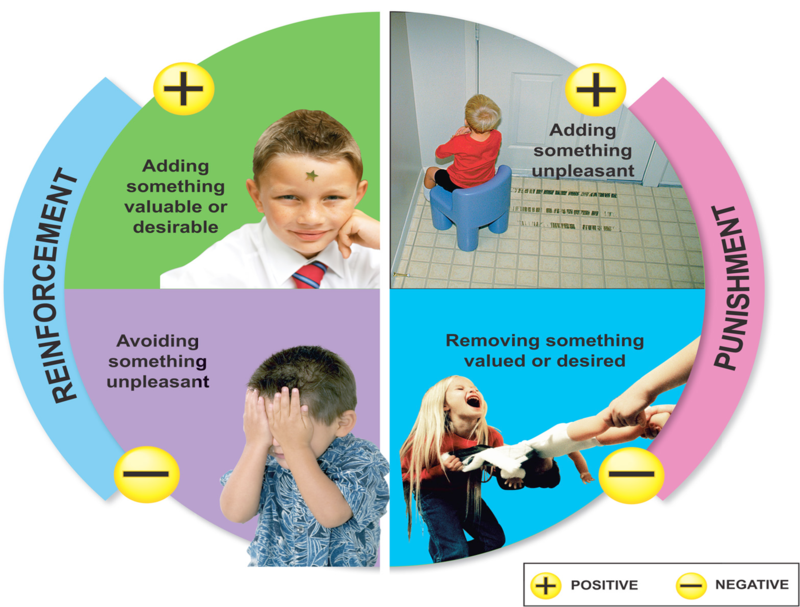Learning, Knowledge and Human Development MOOC’s Updates
Update #1: A key concept of behaviorism
The key concept in behaviorism I want to discuss is "operant conditioning." In simple terms, it is the use of rewards and/or punishments to teach human behavior. These rewards and punishments create positive or negative reinforcements for specific human behavior as shown in the diagram below.
Together, they create the ability of people to learn a behavior that can be appled/used later even when the stimulus or operant conditioning is not presented.
Pavlov's dogs and later Skinner's rats are great examples of how this approach can indeed lead to a desired behavior or response.
However, in both cases these were fairly simple behaviors being taught. Salivating by a dog or pulling a lever by a rat to get food. Much of human behavior and decisionmaking is much more complex - and perhaps impacted by other factors or variables in addition to things people have learned via operant conditioning. For example, human behavior may be affected by things like certain inherited traits or cognitive factors in learning.[1]
A simple, classic example of applying operant conditioning used in a "token economy" is when a primary school teacher rewards young students for good behavior with stickers or some in-class privilege. It is also applied through punishments for bad behavior.
Positive and negative reinforcement comes into play in endless ways in human lives from drug addiction [2] and video game design to the now fast-growing token economy and the daily psychological manipulation that people do with each other.
Importantly, operant conditioning is a part of most everyday parenting - whether parents know the term or not. The use of positive reinforcement (e.g, by rewarding their kids) and punishment are common tools of parenthood. That said, today reinforcement is often preferred over punishment by parenting experts and psychologists alike. This sometimes referred to a "compassion-focused parenting." [3]
[1] See https://www.simplypsychology.org/operant-conditioning.html
[2] Drug addiction and operant conditioning have been much studied - for example in developing treatments and interventions for drug addiction. This is discussed, for example in this study: https://www.wamhc.org/poc/view_doc.php?type=doc&id=48410&cn=1408
[3] For example, see this 2019 paper from the University of Queensland: https://www.mdpi.com/2227-7102/10/1/3




Reward/punishment especially positive reinforcement is so prevalent in society I believe a lot of are unaware how much they actually use it.